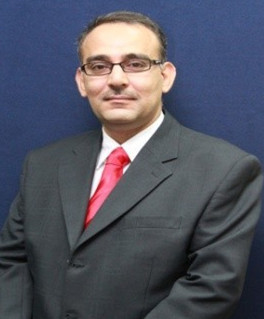Abstract—The future impacts of climate change on heating
and cooling energy demand were investigate by building energy
demand simulations by EnergyPlus model and hourly climate
data for two IPCC scenarios: RCP 4.5 (stabilization emission
scenario) and RCP 8.5 (little effort to reduce emissions). The
climate scenarios have been downscaled from 1º to 50 meters of
spatial resolution over city of Madrid. A Madrid typical 1km by
1km area of buildings is simulated using detailed
meteorological information for each building produced by a
dynamical downscaling process taking into account the 3D
shape of the buildings, for years 2011 and 2100. Three types of
buildings were identified: offices, hotels and apartments. The
three prototypes are based on ASHRAE 90.1 Prototype
Building Modeling Specifications but major characteristics
have been adapted for each specific simulated building. We
analyze the changes (%) in energy demand for the heating (gas)
and electricity (HVAC system) for year 2100 versus 2011.The
results show an increase in cooling demand around 10.5% by
2100 with RCP 8.5. The annual heating gas demand for office
buildings will increase by 64.4% while the cooling energy
demand will fall by 7.8% with the RCP 4.5 because future will
be cooler that the present. The results show that climate change
will have a large effect in the building energy demand and the
used methodology can be used to design strategies to reduce the
effects of climate change.
Index Terms—Climate, downscaling, building energy,
scenarios.
R. S. Jose, J. L. Perez, and L. Perez are with Environmental Software and
Modelling Group, Computer Science School, Technical University of
Madrid (UPM), Madrid, Spain (e-mail: roberto@fi.upm.es,
jlperez@fi.upm.es).
R. M. Gonzalez is with Department of Physics and Meteorology, Faculty
of Physics, Complutense University of Madrid (UCM), Ciudad Universitaria,
28040 Madrid, Spain (e-mail: rgbarras@gmail.com).
[PDF]
Cite:Roberto San José, Juan L. Pérez, Libia Pérez, and Rosa Maria Gonzalez Barras, "Climate Change Impacts on Energy Demand of Madrid Buildings," Journal of Clean Energy Technologies vol. 6, no. 1, pp. 87-92, 2018.


